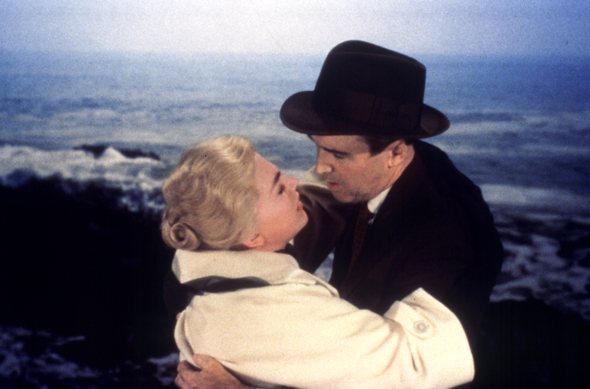The Top 50 Greatest Films of All Time
846 critics, programmers, academics and distributors have voted – and the 50-year reign of Kane is over. Our critics’ poll has a new number one.

Introduction
Ian Christie rings in the changes in our biggest-ever poll.
And the loser is – Citizen Kane. After 50 years at the top of the Sight & Sound poll, Orson Welles’s debut film has been convincingly ousted by Alfred Hitchcock’s 45th feature Vertigo – and by a whopping 34 votes, compared with the mere five that separated them a decade ago. So what does it mean? Given that Kane actually clocked over three times as many votes this year as it did last time, it hasn’t exactly been snubbed by the vastly larger number of voters taking part in this new poll, which has spread its net far wider than any of its six predecessors.
But it does mean that Hitchcock, who only entered the top ten in 1982 (two years after his death), has risen steadily in esteem over the course of 30 years, with Vertigo climbing from seventh place, to fourth in 1992, second in 2002 and now first, to make him the Old Master. Welles, uniquely, had two films (The Magnificent Ambersons as well as Kane) in the list in 1972 and 1982, but now Ambersons has slipped to 81st place in the top 100.
So does 2012 – the first poll to be conducted since the internet became almost certainly the main channel of communication about films – mark a revolution in taste, such as happened in 1962? Back then a brand-new film, Antonioni’s L’avventura, vaulted into second place. If there was going to be an equivalent today, it might have been Malick’s The Tree of Life, which only polled one vote less than the last title in the top 100. In fact the highest film from the new century is Wong Kar-Wai’s In the Mood for Love, just 12 years old, now sharing joint 24th slot with Dreyer’s venerable Ordet…
Ian Christie’s full essay on changing fashions on our new poll is published in the September 2012 issue of Sight & Sound. Texts below are quotations from our poll entries and magazine coverage of the top ten. Links are to the BFI’s Explore Film section. See Nick James’s poll coverage introduction for details of our methodology, and the ‘further reading’ links at the end of this page.
The Top 50
1. Vertigo

Alfred Hitchcock, 1958 (191 votes)
Hitchcock’s supreme and most mysterious piece (as cinema and as an emblem of the art). Paranoia and obsession have never looked better—Marco Müller
After half a century of monopolising the top spot, Citizen Kane was beginning to look smugly inviolable. Call it Schadenfreude, but let’s rejoice that this now conventional and ritualised symbol of ‘the greatest’ has finally been taken down a peg. The accession of Vertigo is hardly in the nature of a coup d’état. Tying for 11th place in 1972, Hitchcock’s masterpiece steadily inched up the poll over the next three decades, and by 2002 was clearly the heir apparent. Still, even ardent Wellesians should feel gratified at the modest revolution – if only for the proof that film canons (and the versions of history they legitimate) are not completely fossilised.
There may be no larger significance in the bare fact that a couple of films made in California 17 years apart have traded numerical rankings on a whimsically impressionistic list. Yet the human urge to interpret chance phenomena will not be denied, and Vertigo is a crafty, duplicitous machine for spinning meaning…—Peter Matthews’ opening to his new essay on Vertigo in our September issue
The Top 50 Greatest Films of All Time | BFIBFI The Top 50 Greatest Films of All Time - Wikipedia, the free encyclopedia
But, really, it should be your favourite film:
Vertigo Trailer (HD) - YouTube
.
.
.





